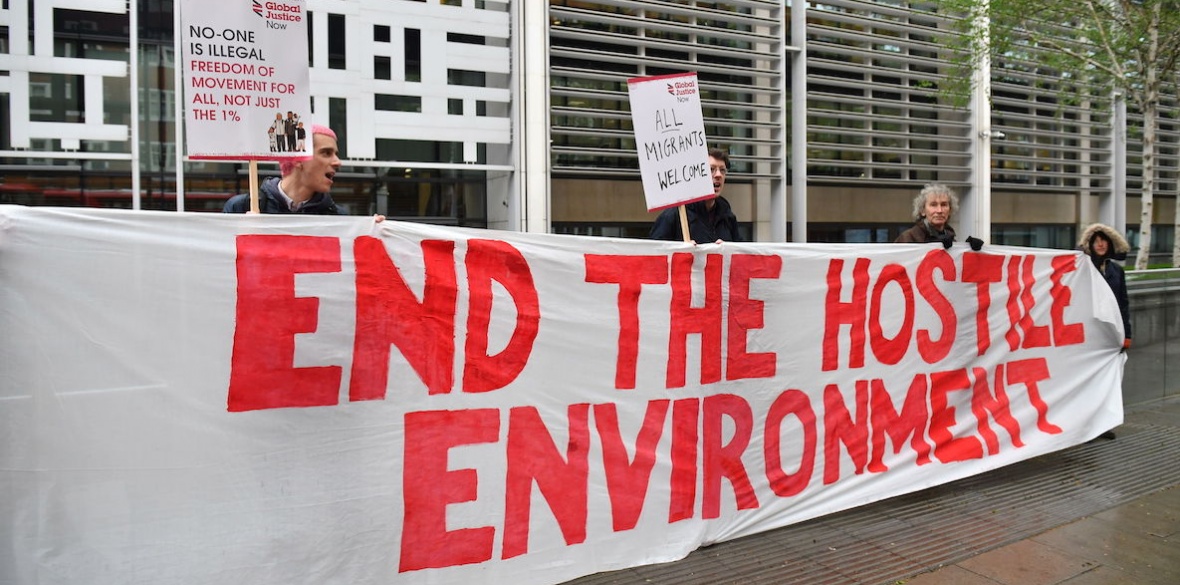This is the last article you can read this month
You can read more article this month
You can read more articles this month
Sorry your limit is up for this month
Reset on:
Please help support the Morning Star by subscribing here
A DOMESTIC abuse survivor has described living under the Tories’ hostile environment for years as a “nightmare,” which “broke [her] down inside.”
Dimple Patel, whose name has been changed to protect her identity, believed that she would finally be safe when she arrived in Britain in 2008.
Having suffered a traumatic incident in her home country of India, she said that her only choices were to flee or take her life.
She arrived here at the age of 23 on a visitor visa and quickly became undocumented.
It would take more than a decade for Ms Patel to be granted the right to stay in the country.
“I didn’t realise when I left, another problem was waiting for me,” she told the Morning Star.
“I thought that when I left India my life would be safe and everything would be OK. But here it’s more challenging. I tried to survive, I cleaned, cooked.”
She spent many years cleaning houses for as little as £3 and relying on the Gurdwara for food.
In 2012, people like Ms Patel suddenly faced a series of government policies designed to make their lives in Britain unbearable, known as the hostile environment.
The policies make it harder for undocumented people to access housing, healthcare and welfare, resulting in many falling into destitution and exploitation.
Living on the edge of society without support and with the fear of being deported “broke me down inside,” she said. “Sometimes I feel like I’m not going to wake up [the] next day, my heart [is] beating a lot. For me it was like a nightmare.”
Around 2016 Ms Patel gave birth to her daughter. “When I had a girl my partner treated me very badly and became abusive. He hit me a lot,” she said.
He told her that if she called the police she would be deported to India and her baby taken away.
She explained that domestic abusers use their partner’s immigration status to control them. “They make it seem like the police means Home Office.”
But she decided to call the police anyway, who helped her to be moved to different accommodation.
Eventually she was moved to a stable place to live in accommodation provided by legal support and migrant charity Praxis. This is when things finally started looking up.
Three years after first applying for a visa, she was eventually granted leave to remain in 2019.
Now she supports women going through the same experiences she did.
Many of the women she helps struggle to survive as a result of the no-recourse-to-public (NRPF) funds condition, a hostile environment policy that bars certain groups of migrants from accessing the vast majority of welfare benefits.
“When I hear their stories, I think they didn't do anything wrong, why are they in this place?” she asks.
“They don’t want to use the government for [their] whole lives, they just want a little tiny support to get a job and make a better life. Who gave [the government] authority to play with peoples’ lives?”
Even though Dimple now has leave to remain in the UK, she continues to struggle to stay in the country. Every two and half years she must renew her visa which costs £2,600 for herself and more for her child. It will take another eight years before she is eligible to apply for citizenship.
“Every day I am scared because when the renewal comes I think: ‘Where am I going to get the money from?’”
While Dimple is still forced to live a life of uncertainty at the hands of Britain’s cruel immigration system, she remains defiant, and is currently campaigning to have the 10-year route to citizenship reduced to five.

 Bethany Rielly
Bethany Rielly







